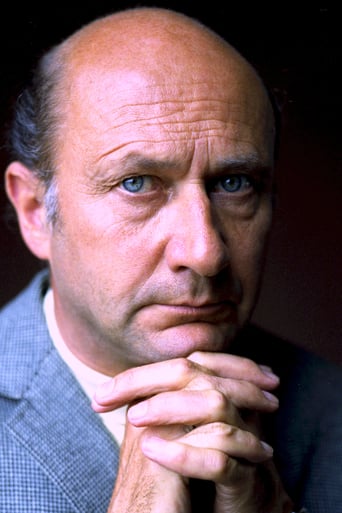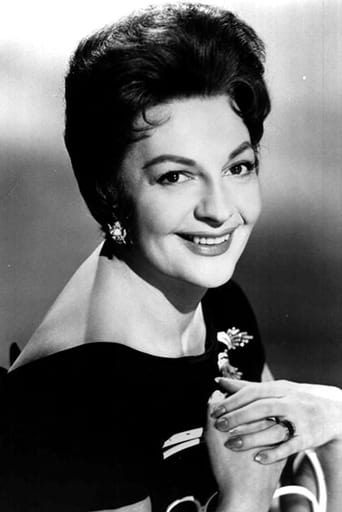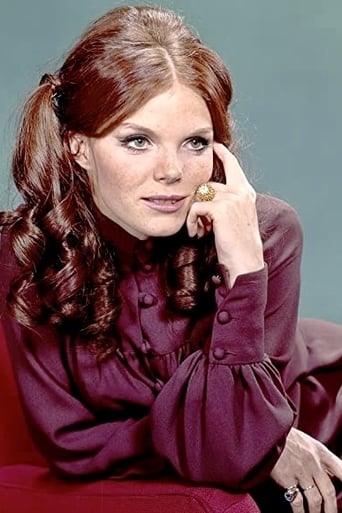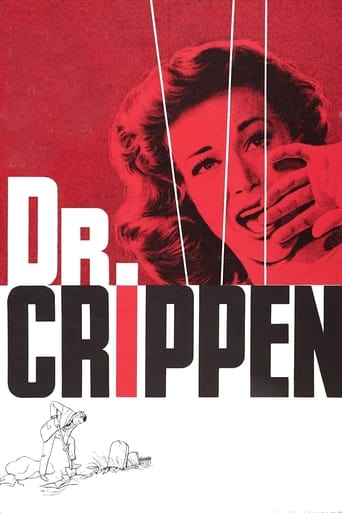
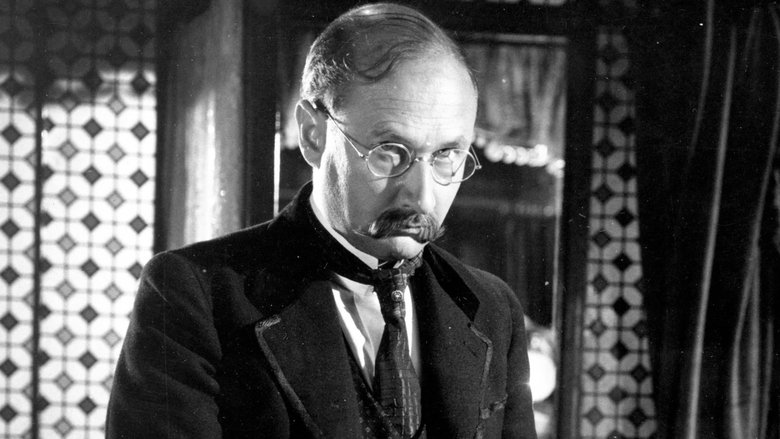
Dr. Crippen (1964)
A British physician stands trial for murdering his wife after he and his mistress are captured while fleeing to Canada.
Watch Trailer
Cast


Reviews
i must have seen a different film!!
When a movie has you begging for it to end not even half way through it's pure crap. We've all seen this movie and this characters millions of times, nothing new in it. Don't waste your time.
A movie that not only functions as a solid scarefest but a razor-sharp satire.
The tone of this movie is interesting -- the stakes are both dramatic and high, but it's balanced with a lot of fun, tongue and cheek dialogue.
Hawley Harvey Crippen has gone down in history as one of the most notorious murderers in British history, although he was neither a serial killer like Jack the Ripper or the Moors Murderers nor a powerful crime lord like the Kray brothers. He was hanged for the murder of his wife whom he poisoned so that he could be with his attractive, much younger, mistress Ethel Le Neve. There were probably many similar domestic murders in Victorian and Edwardian Britain; what made Crippen so famous was probably his dramatic attempt to escape to his native America with Ethel and the part modern technology (or what was then modern technology) played in their arrest aboard a ship in Canadian waters. (Crippen had been recognised from newspaper photographs by the ship's captain, who telegraphed his suspicions by wireless to Scotland Yard).Mrs Crippen's real name was Kunigunde Mackamotski, but she later changed this to Corrine or Cora Henrietta Turner and also used the stage name Belle Elmore. (She was a music hall artiste). In the film she is always referred to as "Belle", although in private life she seems to have preferred "Cora". Her husband has gone down in history as "Dr Crippen", although this is not strictly correct, as his qualifications from the Cleveland Homeopathic Medical College did not allow him to practise medicine in Britain, where he worked, among other things, as a distributor of patent medicines. In the film, however, it is implied that he is a GP.The film follows the facts of the case fairly closely, although there are occasional divergences; Crippen and Ethel are shown as being tried together but in reality they were tried separately, Ethel's trial taking place after Crippen's had been concluded. (She was charged with being an "accessory after the facts" to murder, so it made sense to hold two separate trials. Had Crippen been acquitted, there would have been no charge for Ethel to answer). Crippen and his wife were both American by birth, but they are played here with British accents; unlike many British film-makers from this period the producers were clearly not interested in bringing in Hollywood stars to increase the film's appeal at the American box-office. Or perhaps they could not find Hollywood stars who were interested in playing a notorious murderer and his shrewish wife.There are two excellent performances from Donald Pleasence as Crippen and Coral Browne as Belle, who combine to provide a striking portrait of a disastrously unsuccessful marriage. Browne plays Belle as a crude, vulgar and sexually promiscuous middle-aged woman, no longer attractive although she may have been so in the past. We get some idea of her character when she sings one of her music hall songs in which she declares that, although she is not a "one-man woman", anyone who loves her must be a "one-woman man", and it is quite obvious that this applies as much to the real Belle as it does to her stage persona. She delights in insulting and humiliating her husband, often in front of friends and acquaintances, and cuckolds him with their lodgers and with her music-hall colleagues. Despite her own infidelities she is offended by her husband's affair with Ethel and by the fact that he no longer wishes to sleep with her- not because she is sexually attracted to him but because she cannot bear the idea of any man not being sexually attracted to the great Belle Elmore. (For some reason, Belle always calls her husband "Peter", but Ethel calls him by his real name, Hawley).Pleasence's Crippen is outwardly a quiet little worm of a man who will meekly accept all the humiliations which his overbearing wife loads upon him, but, as they say, even a worm will turn, and Crippen gradually begins to stand up to Belle's bluster. The one acting contribution I felt was weak came from Samantha Eggar as Ethel, as she did little to suggest just why such a beautiful young woman should have fallen so deeply in love with such an unprepossessing and physically unattractive older man. Although Ethel Le Neve was found not guilty of being an accessory to Belle's murder, I suspect that in real life she was not as sweet and innocent as Eggar makes her seem here.At the end of the film Crippen claims that he did not intend to kill Belle but accidentally gave her an overdose of a sedative he was using (without her knowledge or consent) to calm her aggressive nature. Similar claims have been made on his behalf by commentators on the case, but he never raised this claim at the trial. Perhaps preferred to gamble on the possibility of being acquitted altogether than to raise what would effectively have been a defence of "not guilty to murder, guilty to manslaughter". Although manslaughter did not carry the death penalty, it carried the possibility of a long prison sentence which would have separated Crippen from his beloved Ethel.Unlike most crime movies, films like this one which recreate real-life crimes from the past are not really "thrillers"; most of the audience will be well aware of Crippen's story so his eventual conviction and execution will come as no surprise. Such films can, however, shed light on the underlying pressures and psychological factors which lead to crime. 7/10
Poor "Dr. Crippen". As the character himself says, he's gone down in history as some kind of monster, not that far removed from Jack the Ripper. Robert Lynn's simple, sober film sets out to redress the balance. painting Crippen as more sinned against than sinner. Yes, he killed his wife and dismembered her corpse but did she drive him to it and was the killing itself an accident as he ultimately claims? There is no doubt as to which side Lynn's film is on.It's an intelligent little picture if, in the end, not a particularly exciting one and it's very well played by Donald Pleasence, (Crippen), Samantha Eggar, (Ethel Le Neve, his uncomprehending mistress) and Coral Browne, (his shrew of a wife). The fine black and white cinematography is by Nicholas Roeg.
A dour little movie, with flat out ugly photography and ill-matched pairings. In short, the 90- minutes is something of an ordeal to sit through, that is, if you have the usual movie expectations. I don't know what the director told lead actor Pleasance (Crippen), but he acts like he swallowed a lemon throughout, even when in the loving company of the luscious Eggar (Ethel). I know he's supposed to be repressed, but his permanent paralysis appears unreal. Then too, seeing this unpleasant little middle-aged man paired with the lovely young Eggar amounts to more than a stretch. Then there's Belle (Brown), his boisterously unfaithful wife. About five-minutes into the film and I was hoping someone would strangle her and rescue my ears. The movie's only mystery is why it took him so long.The case itself, from books I've read, was pretty much open-and-shut against the doctor. Certainly he had reasons to commit the crime, which coincides with the movie. However, I suspect the element of doubt about his intentions that the movie introduces was an invention to add a provocative note to an otherwise unremarkable screenplay. Certainly, Crippen is presented as a somewhat sympathetic character by movie's end, which looks like a belated effort to humanize an otherwise one-note performance. Anyhow, the lead characters come across more like stereotypes than real people. And that along with the truly grim-faced production amounts to a forgettable movie experience.
I have done some reviews before on some programs or movies that were based on the murder of Cora Crippen (i.e. "Belle Elmore") one century ago. The two movies that come to mind are WE ARE NOT ALONE (Paul Muni, Flora Robson, Henry Daniell) based on James Hilton's blistering novel of authority gone to seed, and THE SUSPECT (Charles Laughton, Stanley Ridges, and again Henry Daniell) which dated the story back eight years, and added a killing as well as altering that final dash across the ocean. Ian Holm appeared in We, THE ACCUSED, a few decades ago, in which the story was totally in the British Isles as well. The basics of the tale remain the same - sad, decent "doormat" husband of termagant wife turns on her and he and his decent girlfriend are destroyed by the society's ideas of justice, right and wrong. How true this is to the actual case is another matter.This 1962 film is rarely seen on television (I watched a ten part division of it on You Tube, but it appears to be complete). It was a fairly sparse production, the biggest expenses seeming to be the actors: Donald Pleasance as Dr. (or "Dr.") Hawley Harvey Crippen, Cora Browne as Cora Crippen, Samantha Egger as Ethel Le Neve, Sir Donald Wolfit as prosecutor Sir Richard Muir, and James Robinson Justice (who merited a separate cast listing in the opening credits) as "Captain McKenzie" of the Montrose (actually Captain Henry Kendall, who happened to be alive in 1962 - he died in 1965). The acting is excellent, especially that of Pleasance, Browne, and Egger. Aside from a model of the Montrose seen at night there were few special effects. But then few were needed.Crippen is the odd duck among British murderers or defendants in murder trials. Others were convicted and later doubt cast on the conviction - most notably Timothy Evans in the Christie Case (see 10 RILLINGTON PLACE), William Herbert Wallace for the murder of his wife in 1931 (see THE MAN FROM THE 'PRU), and Derek Bentley for being old enough to hang for the killing of a policeman by his friend and partner, the underage Christopher Craig (see "LET HIM HAVE IT CHRIS!"). Yet unlike the last three, who most people assume were innocent or less guilty (Bentley) than they were treated, Crippen is the reverse. Most people still believe he killed Cora, but feel he was under intense pressure from his victim. It's impossible to come to any agreement now on that point.Cora was oversexed, but there is evidence that Crippen initially was attracted to her when they married (by the way, he was married before, had a son, but his wife died - the son survived him). Cora had a hysterectomy (the surgery scar discussed in this film squeamishly avoids the reason for the scar). Tom Cullen in his book CRIPPEN: THE MILD MURDERER, has suggested that this was the true tragedy of the story - both wanted children. Had they had some it might have united them.Cora still could have sex and admirers, and did flaunt both. It disgusted her husband, but he kept quiet. She and her lovers (their "boarders") treated him with contempt, and an early scene of him cleaning their shoes shows how life was really cruddy for him. But eventually he hired Miss Le Neve, and found the great love of his life. Cora found out and the crisis arrived - and at the end she was dead.The film is taking it's cue from a theory (first voiced by the great British barrister Sir Edward Marshall Hall) that the hyoscin bromide given Belle was to calm her down and cut her sexual drive. Actually it is hard to tell - in sufficient doses hyoscin is deadly. So it proved here. Moreover Cora's head was never found in the remains, and some claimed they heard a gunshot that night. Possibly Hawley had to silence her screams due to giving her too much of the medication.Hawley's popularity was cemented by his insistence that Ethel not be mentioned at his trial (in fact, they had separate trials - not one like this film). Ethel was defended by F.E.Smith, the future Lord Chancellor Lord Birkenhead, and won acquittal. Hawley's decision to assure his own conviction to save Ethel is what makes him gain our respect in the end.Was he (as Filson Young tried to suggest) half spiritually good and half revolting? Possibly. I happen to wish his sentence had become a prison sentence, but it seems unlikely it could have been. That forgotten, pretentious spy novelist William Le Queux claimed he met Crippen who knew all about poisons, and Le Queux suggested he was one of the most dangerous men in the world. But most people liked him, including Inspector Walter Dew (who retired from the police after the conviction - he hated having to testify against the man who became his friend). But I leave you with this thought - he was a successful businessman in the sale of harmful, patent medicines and in questionable medical "institutes" for ear care. There was a darker side to Hawley we all tend to turn away from.


